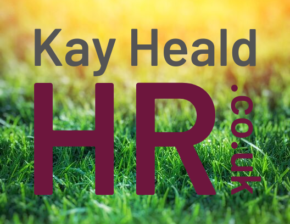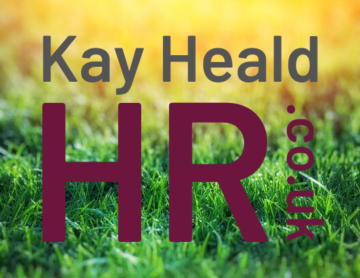A one page summary of employment news for busy managers
Brexit and Employment
The scheme to protect EU citizens’ right to remain in the UK, once freedom of movement ends following Brexit, is now fully open for applications after its initial pilot period. EU citizens who have already been in the UK for five years may apply for settled status, while those who have been here for under five years can apply for pre-settled status.
Kay’s comment: All EU citizens must apply, even if they already have permanent residency in the UK. This new status is not dependent on employment and the process to apply is fully digital and free of charge. From January 2021, a new immigration system will be applied for both EU and non-EU citizens. Check gov.uk for toolkits and guides.
National Living Wage, National Minimum Wage and Other Increases (April 2019)
The National Living Wage has increased to £8.21 p/hr; the NMW for 21-24 year olds has increased to £7.70; for 18 to 20 year olds to £6.15; for 16-17 year olds to £4.35 and the apprenticeship rate to £3.90.
Statutory Sick Pay has increased to £94.25 a week and Statutory Maternity, Paternity, Adoption and Shared Parental Pay has increased to £148.68 a week. Employer contribution to auto-enrolment pension schemes increases to 3% and employee contribution to 5%.
Itemised Pay Statements for Workers (April 2019)
All employers are now required to itemise payslips for the wages of all workers (not just employees) and which vary depending on how much time they have worked. This must include either the combined number of hours worked for which payment is being made or itemised amounts for different types of work completed and/or different rates of pay.
Good Work Plan – Holiday Pay Calculations (2020)
The reference period to determine a week’s pay, when calculating holiday pay for workers with irregular hours, will be increased from 12 weeks to 52 weeks from April 2020. This forms part of the government’s Good Work Plan which will allow greater flexibility for workers in choosing when to take holiday.
Parental Bereavement Bill (2020)
The Parental Bereavement Bill will become law in 2020. Employed bereaved parents will be able to take two weeks paid time off work if their child (18 years or below) sadly dies or is stillborn. It will be paid at the statutory level, similar to paternity leave and therefore small employers will be able to recover the pay from government.
Kay’s comment: Unfortunately, the new legislation does not extend to siblings, grandparents and others with caring responsibilities. It is also limited to leave being taken in week blocks rather than days and requires proof of death which seems very insensitive. Hopefully, this will only affect a very small number of employees and, if a death does occur, employers will decide to provide support above and beyond the legal minimums, so that families are given the time and support they need to grieve and make arrangements.
Menopause at Work
A new FREE guide has been produced by the CIPD to help raise awareness and understanding about the menopause and how managers can help support their employees:
Kay’s comment: The guide gives practical steps for handling sensitive conversations and encouraging more open dialogue about perimenopausal and menopausal issues. Similar approaches should also be applied for those suffering from wider hormonal problems. For further information please refer to my article on Hormonal Health
EXTRA INFORMATION
HR Article: Making Flexible Working Work Ideas for helping to overcome flexible working problems in small businesses
Please Note: The information contained in this e-newsletter is provided for your general use only. It should not be treated as a substitute for obtaining professional employment advice on specific issues.


